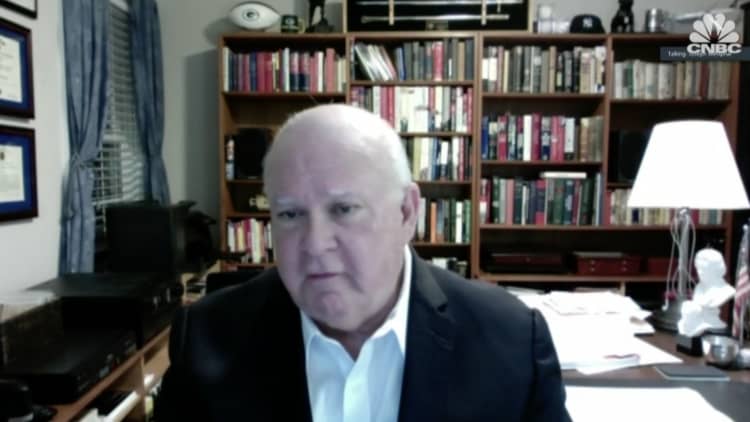Does China’s role in Saudi-Iran rapprochement represent a new order?
A man in Tehran holds a local newspaper reporting on its front page the China-brokered deal between Iran and Saudi Arabia to restore ties, signed in Beijing the previous day, on March, 11 2023.
Atta Kenare | Afp | Getty Images
DUBAI, United Arab Emirates — When arch-rivals Saudi Arabia and Iran announced they were restoring diplomatic relations, much of the world was stunned — not only because of the breakthrough after years of mutual animosity, suspected attacks and espionage between the two countries, but because of who brokered the deal: China.
Taking up a specific role that the U.S. could not have fulfilled, this was Beijing’s first foray into Middle East mediation, an area that for the past few decades was largely occupied by Washington.
As tensions simmer between the world’s two largest economies and U.S. policymakers sound the alarm over competition and security concerns with China, what does Beijing’s ascendance in the region mean for the Middle East — and for U.S. interests?
“Many are breathing a sigh of relief [with] today’s official Iran-Saudi agreement,” Bader al-Saif, an assistant professor of history at Khalifa University in Abu Dhabi, wrote on Twitter after the news was announced. “All 3 parties to the deal can claim victory, but Saudis are arguably the biggest winner,” he contended.
From the Saudi perspective, normalization with Iran — a country that’s long been seen by the Saudi monarchy as one of its greatest security threats — removes obstacles in its reform and economic transformation journey, according to Joseph Westphal, a former U.S. ambassador to the kingdom.
“I think the leadership there believes that this is a very important moment for Saudi Arabia as it emerges … as a real leader in the world on many issues,” Westphal told CNBC’s Dan Murphy on Tuesday. “A constant struggle with Iran delays that and impedes the progress that they made.”
“Obviously, the United States could not have made this agreement possible because we don’t have a relationship with Iran,” the ambassador added. “I think China was a good partner to do this. I think they’re the right people,” he said, noting that China invests heavily in Saudi Arabia and is its top trading partner.
“So I think this is a very good thing all the way around.”

Hopes for de-escalation in areas like Yemen, where Saudi Arabia has carried out a brutal war against Iran-backed Houthi rebels since 2015, are now more realistic than before, analysts say. Risks to shipping and oil supplies in the region may be reduced, and trade and investment between the countries could add to growth.
Reduced risk of direct military confrontation
At the very least, improved communication will reduce risks of confrontation, said Torbjorn Soltvedt, principal Middle East and North Africa analyst at Verisk Maplecroft, who called the deal “a much needed pressure valve amid heightened regional tensions.”
Still, it’s a mistake to assume that everything is solved.
“Due to the ongoing shadow war between…
Read More: Does China’s role in Saudi-Iran rapprochement represent a new order?
